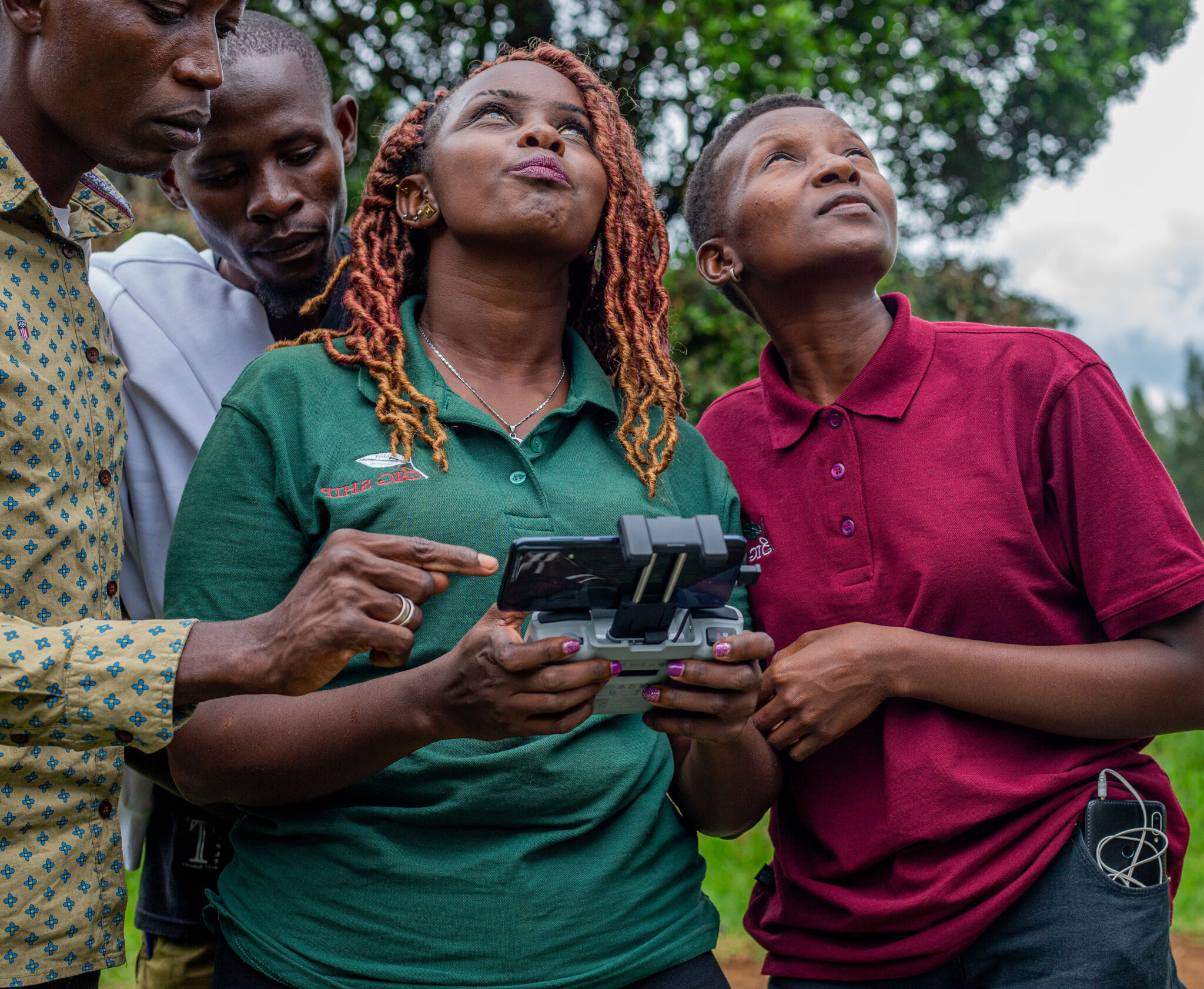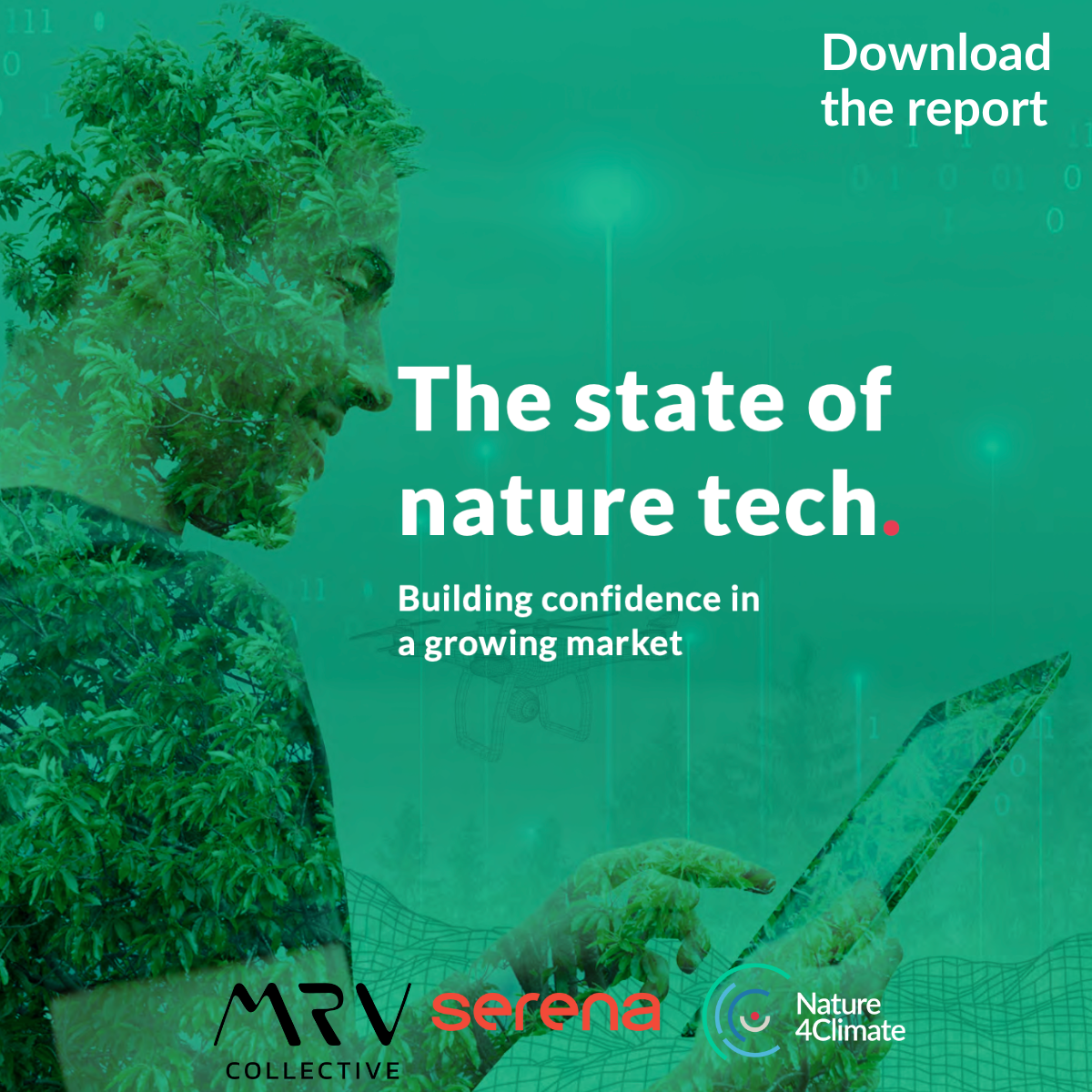
Read more
Related articles for further reading
Photo: JSE Productions
The nature tech market is a vital tool in supporting nature-based solutions (NbS) in a number of ways. This includes the development and implementation of tools and techniques in projects and on the ground, by automating processes and providing the accurate and reliable data needed to develop the market further.
Venture capital (VC) investments in nature tech startups have been developing quickly over the past three years: early-stage deals rose by 130% between 2020 and 2022 and average deal sizes for seed to series B funding increased by 70%, demonstrating the growing maturity of the nature tech industry.
To date, nature tech has often been considered a vertical sub-sector within the climate tech VC market, now valued at more than US$40 billion. However, nature tech extends beyond climate tech and can be considered an investment category of its own. In the last five years, the accumulated amount of VC investments in nature tech startups amounted to $7.5 billion.
Innovation, market research, and the application of nature tech are generating high levels of investor interest and inspiring confidence in the market, making nature-based solutions an increasingly attractive investment option. New products, new companies, new ideas, and new markets are emerging and pose a disruptive challenge to incumbents and offer the prospect of positive change in building a decarbonised and nature-positive global economy.
A global shift towards nature-positive economic activity is underway and presents a major opportunity for providers of diagnostic, analytical, and data-rich tools and techniques. The field of ‘monitoring, reporting and verification’ (MRV) is of fundamental importance, as robust MRV provides project developers, investors, and financial institutions with confidence that impacts have been properly and rigorously considered.
While there are a wide range of opportunities in the nature tech market, there is also a need to ensure adequate safeguards are put in place to manage risks and to ensure that environmental and social benefits are spread widely and fairly. Safeguards are critical to ensure that all communities are considered and protected, including Indigenous peoples and local communities. This engagement forms part of a broader need to make technology both accessible and affordable, so that it can serve broader community and social goals.
There is a great diversity and breadth of initiatives that are underway across the globe, with much of the innovation being tailored to local and regional challenges.
The latest “The state of nature tech: Building confidence in a growing market” highlights key trends that are occurring throughout the market while also focusing on the challenges of moving promising or even tested solutions to a much greater scale where their full environmental, social and financial benefits can be realised. It also highlights dozens of examples and case studies of innovations, products, and concepts that have been and continue to be developed by emerging companies, eager to contribute to addressing the twinned global challenges of nature loss and climate change.
To download this latest market report, click here:
Previous reports:
- To see the introductory white paper from Nature4Climate (September 2022), click here.
- To read the nature tech landscape analysis (November 2022), click here.
Previous events:
- Livestream and article from Nature Tech in Action during New York Climate Week September 2023
- An article on Nature Tech in Action during London Climate Action Week June 2023
- Livestream from Nature Tech event at COP27 in November 2022
